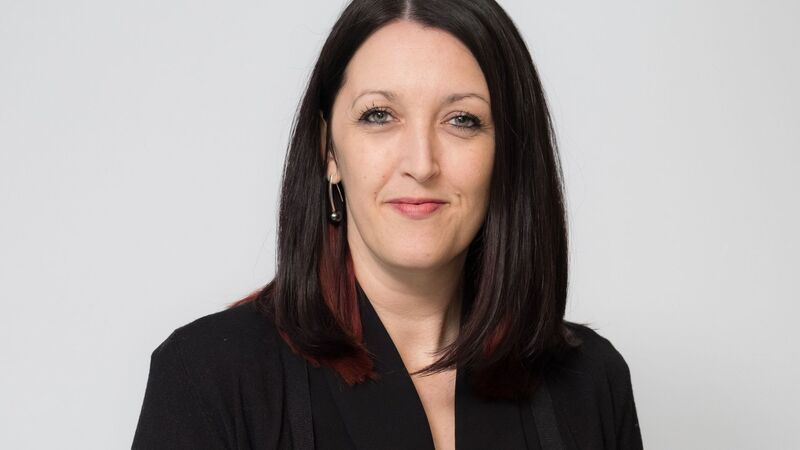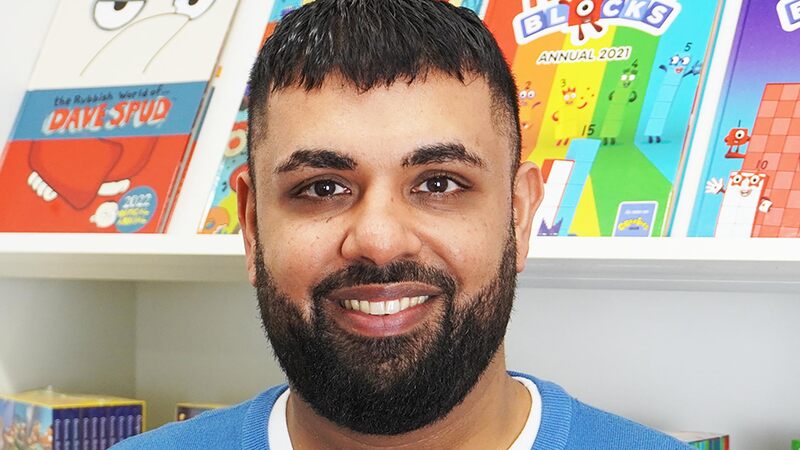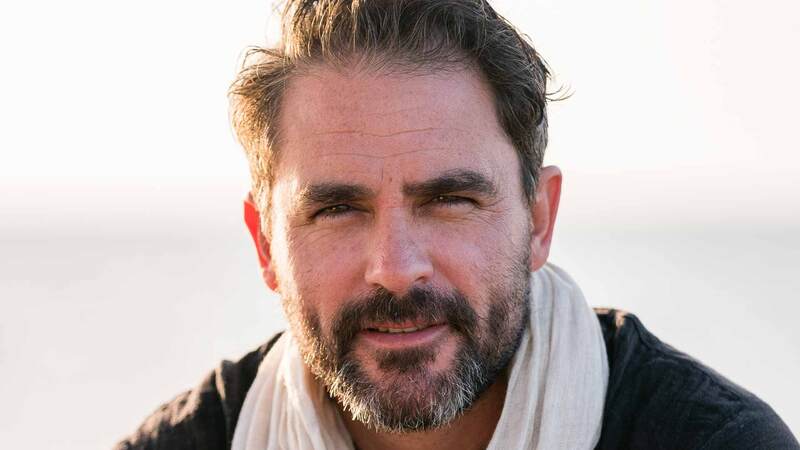You are viewing your 1 free article this month. Login to read more articles.
IPG conference: Allende and Page call for publishing innovation
Publishing has a “default no” mindset that stops it innovating, author Sam Conniff Allende told the IPG conference yesterday (September 17th), as Stephen Page warned firms have to make their brands work harder to survive.
Allende told the conference he did not know why the publishing industry was so resistant to new ideas and he had never come across it in other sectors. “So many reasons why so many things can’t be done,” he said.
The former marketing agency boss acknowledged the depth of pride and knowledge in the trade but claimed it was undermined by “such massive risk aversion”. He said: “There’s so much love and desire to do things differently and then at the exact moment of doing things differently it seems to really run aground. I find that a real challenge.”
Allende, whose first book Be More Pirate: Or How to Take on the World and Win was published by Penguin in 2018, said the trade was “owned by data but does not own data”.
“Take a comparison, look at the music industry, your distant cousins look to a piece of software called Kobalt which allows people to make smart decisions about social media applications based on the immediacy of sales,” he said, referring to a music services company that shows sales data in real time. “I don’t think anyone at the IPG knows exactly how many units have moved off a shelf in a day. This industry is light years away from the kind of data that could be really useful to it.”
Page, c.e.o. of Faber & Faber, also appeared on stage at the Shaw Theatre in King’s Cross, and agreed more innovation was needed. He said: “When doors open, you’ve got to pile through that door. Things like video being the new vernacular of a generation. You’ve got to learn how to make moving pictures. All of these things we started to learn how to do, like stormtroopers for literature.”
He added when Faber was going through a tough time five years ago his team focused on the brand again, one that had been shaped by its publications for 90 years now. He said: “When Faber was at its best it always moved the dial of culture, it always had an effect on society, it always represented writers, sometimes who were serious outsiders.”
Page said Faber wanted commercial success but without “trying to bend to the market” but by being themselves. He explained the market was telling them “what to do tomorrow based on what happened yesterday”. Instead, editors were give more control over what to publish, changed the reporting lines of design into editorial, allowing covers to be innovative again, and invested in a new generation of staff and writers.
He explained the publication of Kazuo Ishiguro’s last novel The Buried Giant was a turning point, with a midnight opening, a cover reveal and promotions that made other publishers’ “toes curl” but helped put the book at number one – a first for the author. He said: “It’s bringing into the business the marketing expertise that the rest of the world knows works but applying it to parts of culture where people have been a bit squeamish.”
Page also talked about the importance of Faber Academy and Faber Members, an online scheme launched three years ago which doubled its membership in the past year to a “decent five figure” number that shares news and has an exclusive web shop. That allows Faber to harness data and target people before they ask Alexa for a recommendation the publisher has no say over.
He told the audience: “Publishing innovation is where we should be, whether they’re digital or physical or both. Ways in which we can draw people into what we do.” He went on: “One of the things I believe very strongly is in a more digital, more online world, we at Faber will have to make our brand work harder.”
On the same panel, Nicola Usborne discussed the growth of her firm Usborne Publishing, launching a new fiction arm and releasing online games with a not for profit philosophy, while Chris Bennett discussed how Cambridge University Press was reinvigorating itself. Bennett said the firm went out and asked its platform users what they wanted the company to be in order to try and become “the leading university press” by embracing open access with a paid for publishing as a service, rather than for content, model.
A packed day of events in London, featuring more than 300 delegates and 35 speakers, culminated with a "suprise speaker" who turned out to be James Sills, author of Do Sing (Do Books). After a few warm-up exercises Sills led the auditorium in a harmonised, surprisingly tuneful, rendition of "Higher and Higher" by Jackie Wilson.
The conference also saw Chris Jolly, founder of education publisher Jolly Learning, awarded the IPG Patrons Lifetime Achievement Award. Jolly, who said he came into publishing “by accident” after being made redundant, set up his firm in 1987. He has since been instrumental in establishing the phonics style of helping children learn to read in English.
IPG c.e.o. Bridget Shine said: “Chris embodies so many of the qualities of independent publishing. He is an entrepreneur with the drive to start up his own business, the vision and tenacity to achieve sustained growth, and a passion for his publishing that inspires others. Jolly Learning’s work around the world also shows how independent publishers can make huge contributors to international trade and can change people’s lives.”
















